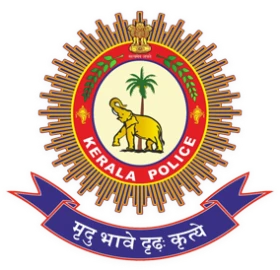- Emergency Helpline No. 112
- യോദ്ധാവ് 9995 966 666


മലപ്പുറം പോലീസ്
ചരിത്രം
Who is Who
ഗുഡ് വർക്ക്സ്
പ്രസിദ്ധീകരണങ്ങൾ
വിഭാഗങ്ങള്
ജനറല് എക്സിക്യൂട്ടീവ്
പോലീസ് സ്റ്റേഷനുകൾ
- മലപ്പുറം പോലീസ് സ്റ്റേഷൻ
- വേങ്ങര പോലീസ് സ്റ്റേഷൻ
- മഞ്ചേരി പോലീസ് സ്റ്റേഷന്
- കോട്ടക്കല് പോലീസ് സ്റ്റേഷൻ
- കൊണ്ടോട്ടി പോലീസ് സ്റ്റേഷൻ
- വാഴക്കാട് പോലീസ് സ്റ്റേഷൻ
- കരിപ്പൂര് പോലീസ് സ്റ്റേഷൻ
- അരീക്കോട് പോലീസ് സ്റ്റേഷൻ
- തേഞ്ഞിപ്പലം പോലീസ് സ്റ്റേഷൻ
- പെരിന്തല്മണ്ണ പോലീസ് സ്റ്റേഷൻ
- കൊളത്തൂര് പോലീസ് സ്റ്റേഷൻ
- മങ്കട പോലീസ് സ്റ്റേഷൻ
- പാണ്ടിക്കാട് പോലീസ് സ്റ്റേഷൻ
- മേലാറ്റൂര് പോലീസ് സ്റ്റേഷൻ
- കരുവാരകുണ്ട് പോലീസ് സ്റ്റേഷൻ
- നിലമ്പൂര് പോലീസ് സ്റ്റേഷൻ
- വണ്ടൂര് പോലീസ് സ്റ്റേഷൻ
- എടവണ്ണ പോലീസ് സ്റ്റേഷൻ
- കാളികാവ് പോലീസ് സ്റ്റേഷൻ
- പൂക്കോട്ടുംപാടം പോലീസ് സ്റ്റേഷൻ
- എടക്കര പോലീസ് സ്റ്റേഷൻ
- പോത്തുകല് പോലീസ് സ്റ്റേഷൻ
- വഴിക്കടവ് പോലീസ് സ്റ്റേഷൻ
- തിരൂര് പോലീസ് സ്റ്റേഷന്
- വളാഞ്ചേരി പോലീസ് സ്റ്റേഷൻ
- കുറ്റിപ്പുറം പോലീസ് സ്റ്റേഷൻ
- പൊന്നാനി പോലീസ് സ്റ്റേഷൻ
- ചങ്ങരംകുളം പോലീസ് സ്റ്റേഷൻ
- പെരുംമ്പടപ്പ് പോലീസ് സ്റ്റേഷൻ
- താനൂര് പോലീസ് സ്റ്റേഷൻ
- പരപ്പനങ്ങാടി പോലീസ് സ്റ്റേഷൻ
- തിരൂരങ്ങാടി പോലീസ് സ്റ്റേഷൻ
- കല്പ്പകഞ്ചേരി പോലീസ് സ്റ്റേഷൻ
- കാടാമ്പുഴ പോലീസ് സ്റ്റേഷൻ
- മലപ്പുറം സൈബര് ക്രൈം പോലീസ് സ്റ്റേഷൻ
- മലപ്പുറം വനിത പോലീസ് സ്റ്റേഷൻ
- പൊന്നാനി തീരദേശ പോലീസ് സ്റ്റേഷൻ
Organizational Structure
പൊതുവായ വിവരങ്ങള്
ഗാലറി
കുറ്റകൃത്യങ്ങളുടെ സ്ഥിതി വിവര കണക്കുകള്
- കുറ്റകൃത്യങ്ങളുടെ ആകെ സ്ഥിതി വിവര കണക്കുകള്
- ഐ .പി .സി വിഭാഗം
- എസ് .എസ് .എല് വിഭാഗം
- കുട്ടികള്ക്ക് എതിരെയുള്ള കുറ്റകൃത്യങ്ങളുടെ സ്ഥിതി വിവര കണക്കുകള്
- സ്ത്രീകള്ക്ക് എതിരെയുള്ള കുറ്റകൃത്യങ്ങളുടെ സ്ഥിതി വിവര കണക്കുകള്
- SC ST Atrocities Act Cases
- Cyber Cases
- Missing Cases
- റോഡ് അപകടങ്ങളെ കുറിച്ചുള്ള സ്ഥിതി വിവര കണക്കുകള്
- Cigarettes and Other Tobacco Products Act, 2003 (COTPA)- പ്രകാരം ഉള്ള കേസുകളുടെ സ്ഥിതി വിവര കണക്കുകള്
- Protection of Children from Sexual Offences Act- പ്രകാരം ഉള്ള കേസുകളുടെ സ്ഥിതി വിവര കണക്കുകള്
ഡൗൺലോഡ്





